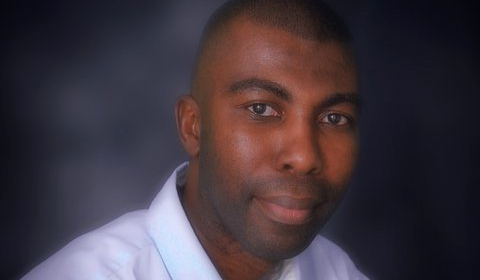Every day I receive new followers on my Twitter account and as customary, I inspect the profile of each new follower. A few days ago, upon inspection of one of my new followers’ profile, the description said “Controlador de Tránsito Aéreo … A job that slowly kills you.”
Every day I receive new followers on my Twitter account and as customary, I inspect the profile of each new follower. A few days ago, upon inspection of one of my new followers’ profile, the description said “Controlador de Tránsito Aéreo … A job that slowly kills you.”
I was amused, but my amusement soon gave way to curiosity as I wanted to know what factor(s) led to that statement. If there is any truth to that statement, I want to offer advice on how to extend your life. Not literally, but qualitatively as an air traffic controller.
Before I offer any advice, I must say that the management of any Air Navigation Service Provider (ANSP) should be concerned that anyone in its ranks feels that way. Such feeling must serve as an early warning signal that something is wrong, and more importantly, start seeking solutions – sooner rather than later.
Perhaps optimal staffing conditions do not exist. Are there adequate air traffic controllers? Are there fatigue breaks? Is there a work and rest scheme that is implemented and maintained to eliminate fatigue? These are but a few questions that management must ask if they want to identify hazards and mitigate the risk of having fatigued air traffic controllers.
Just about two week ago, the public got a glimpse of the FAA’s findings of a study on fatigue among air traffic controllers. This is good fodder for the management of all ANSPs, and it is perhaps timely that controllers elsewhere are speaking up now.
I eventually initiated a dialogue with René, the controller, and as communication ensued, I got an insight into the situation in Chile where he hails from and it was further amplified in a CNN Chile news story on air traffic control which he shared.
As suspected, there were industrial issues including lengthy periods of watch, no fatigue break, and an imbalance in the work and rest scheme. So, with issues that you have no control over, what can you do?
Concentrate on the circle of influence
In the book The 7 Habits of Highly Successful People, Stephen R. Covey wrote about the circle of concern and the circle of influence. The circle of concern encompasses the wide range of concerns we have, such as our health, our children, problems at work, the amount of government borrowing, or the threat of war. The circle of influence encompasses those concerns that we can do something about. They are concerns that we have some control over.
Stephen Covey posits that we should be responsible for our own lives, as our behavior is a function of our decisions, not our conditions. We can be proactive by focusing on issues within our circle of influence. Work on things that we can do something about. This in itself is positive, enlarging and magnifying. Eventually, the circle of influence increases.
What are you passionate about? Learning a new language, developing a new skill, traveling the world? Whatever it is, by focusing on your passions, energy will flow where your attention goes. It will be so fulfilling when you accomplish your personal goals (things within your circle of influence) that the problems at work will be distant.
Control your thoughts
What you think about, you bring about. Scientists have estimated that we have as much as 70,000 thoughts a day, and most of them are negative. The good news is that we have control over our thoughts. Think of the universe as a vast inventory of everything and our thoughts as the orders we place. If you think positive, it will manifest itself likewise. In fact the problems or adversity that you face at work brings with it the seed of an equivalent or greater benefit.
Studies of people who have become successful beyond their wildest dreams have a collection of things in common. Thinking positive is one of them, and they were not without adversities.
Negative thoughts only serve to increase your fears, which can cripple you and consequently stress you out beyond what is normal.
Thinking about the pleasurable activities provides psychological triggers for endorphin release. Endorphins are natural hormones that create a sense of pleasure, making you feel empowered and good about yourself.
Exercise
Exercise is one of few things that can liberate endorphin, giving you that feeling of euphoria. Following exercise routines, instead of being tired, you actually feel more exhilarated and remain invigorated for a few hours. Exercising regularly for 20 minutes or more can promote endorphin secretion.
Meditation
I have never personally tried meditation, but my research tells me that it acts against your “fight or flight” hormones. A hormone that is constantly produced when air traffic controllers have aircraft conflicts to deal with.
Meditation triggers the hypothalamus to produce and secret beta endorphins, which are the key to the lingering calmness you feel after your meditation.
…. and in the end
It is a travesty when air traffic controllers, the guardians of the sky, are not given the managerial support they need and are owed to preserve air safety. Without the benefit of hearing from the other side of the dispute line, I will refrain from casting any judgement.
The beauty of life is that we are all partners in this aviation profession, and once we take ownership of our individual roles, we can make a difference. By adopting the four tips I have offered – and there are more – you can at least extend the quality of your own lives while constantly engaging your management team in dialogue on solutions to the problems.
What are some of the other life extenders that you have tried?








